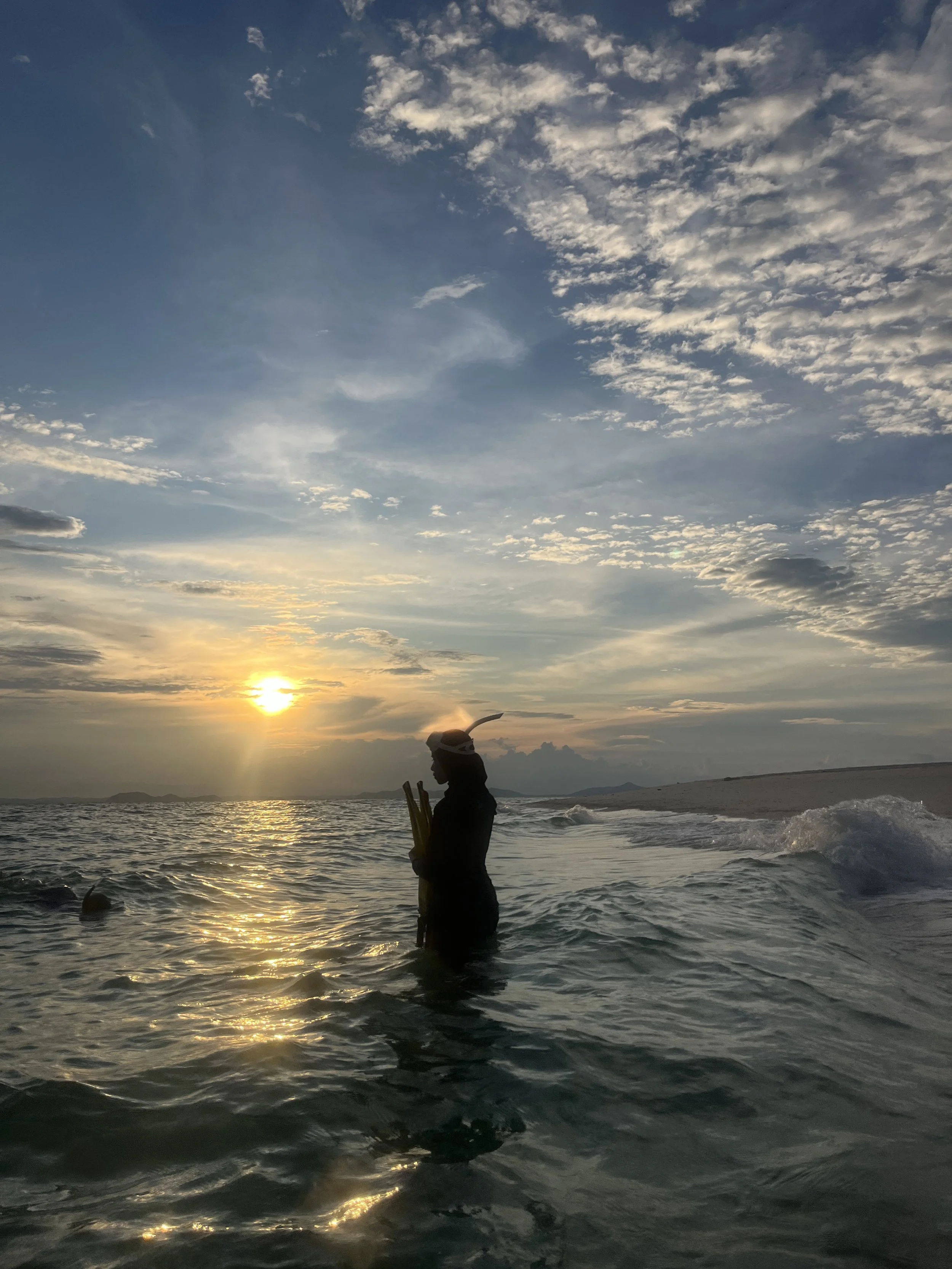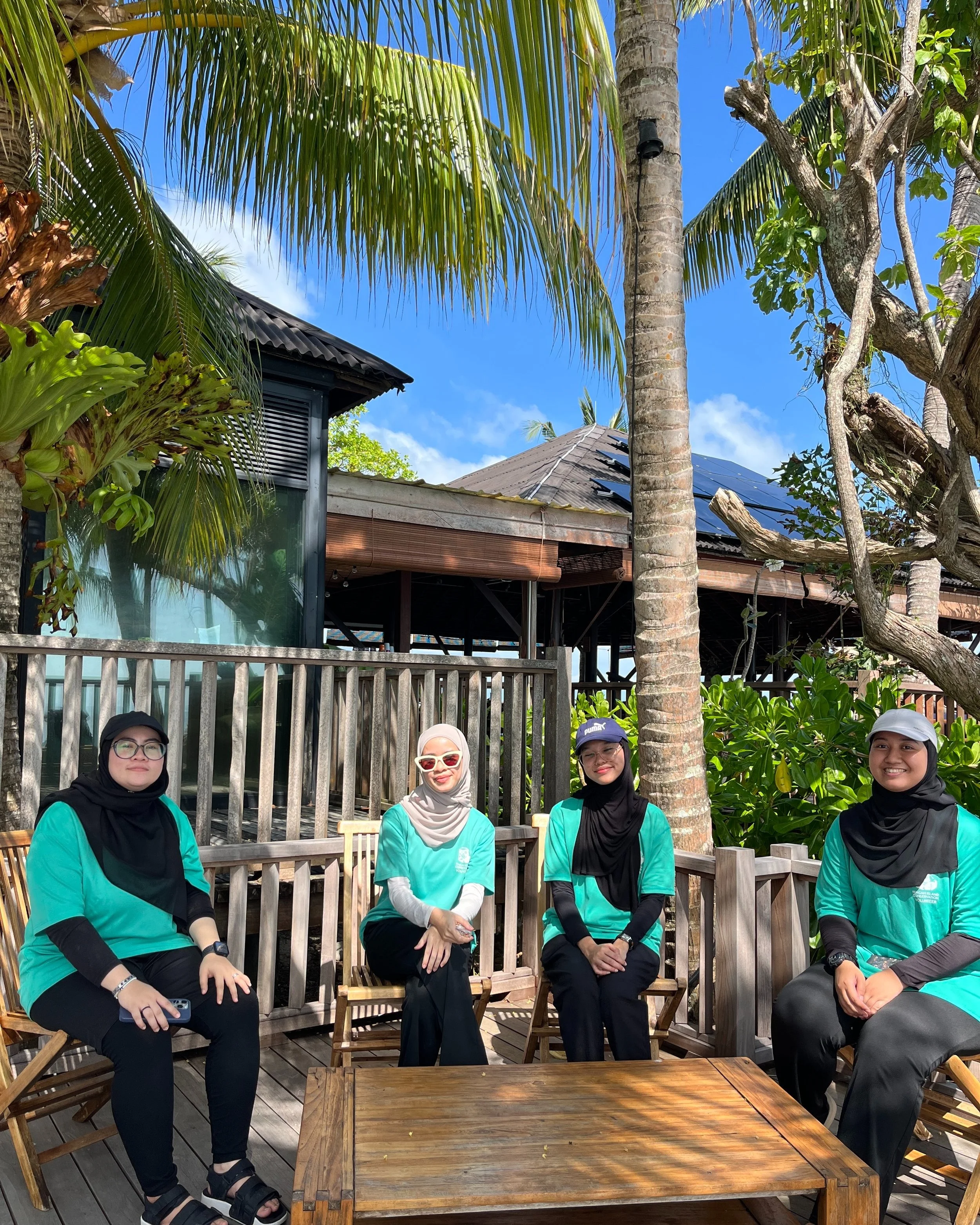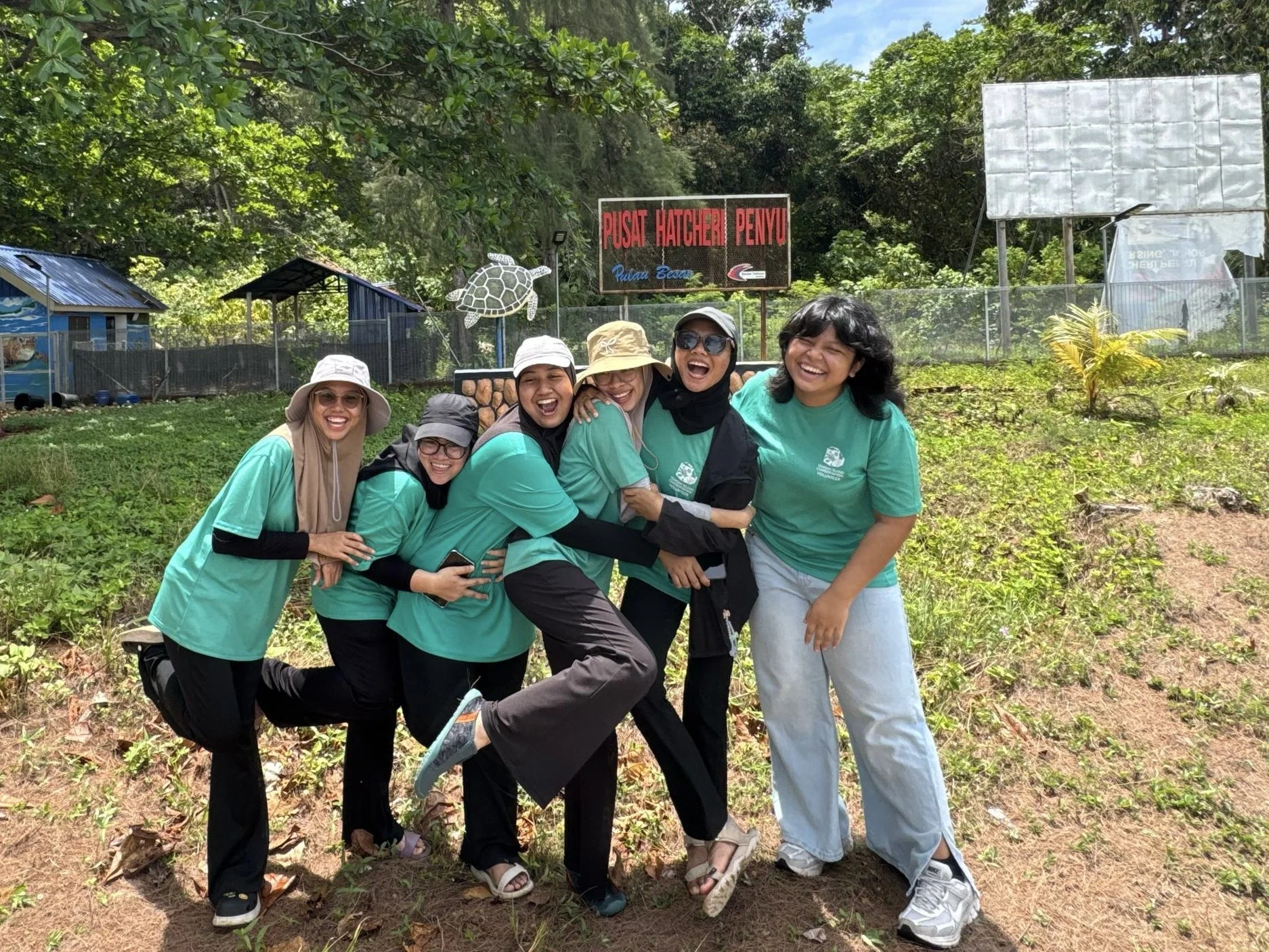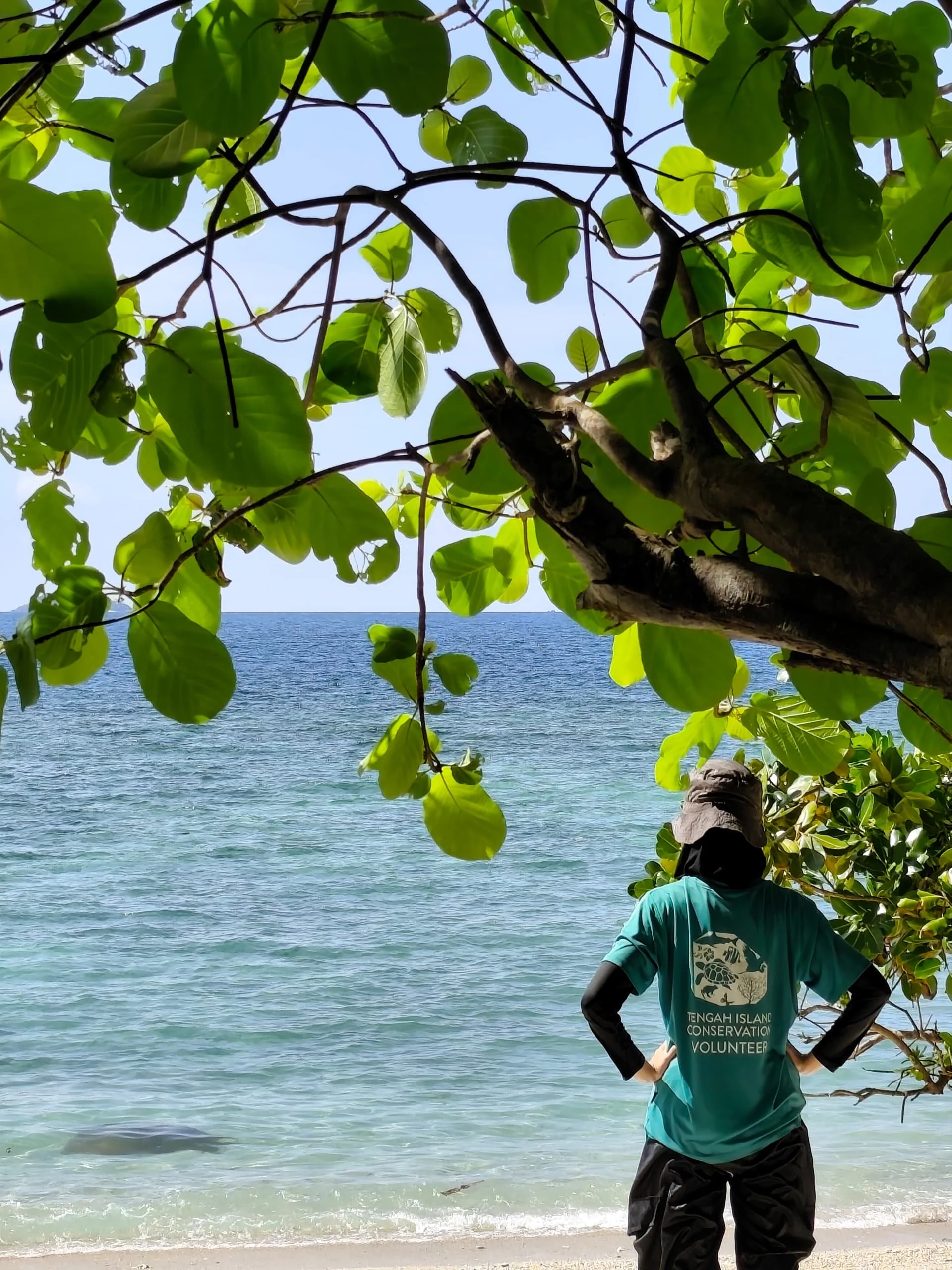The Sea, the Soul, and the Journey In Between - AUNI, MAY 2025
David Attenborough, the legendary natural historian who has spent nearly a century documenting the wonders of our planet, once said,
“After a lifetime of filming our planet, I now understand the most important place on Earth is not on land, but at sea. For if we save the sea, we save our world.”
For most people who spend their lives grounded on land and only visit islands occasionally for leisure, it’s easy to forget just how much of our world is made up of oceans. Vast, mysterious, and seemingly indestructible—but in reality, incredibly fragile. As calm as the sea may look, it holds the power to shape destinies and devastate entire nations in a single wave.
My passion for the ocean didn’t come in some cinematic moment. It came quietly, almost randomly by instinct. But over time, it grew into something deeply meaningful—something that drives me to wake up every day and contribute something to the world, even if it’s just to my own little world. It’s a passion I hold dear, one I see as a privilege—especially with the unwavering support of my parents, who saw my eyes light up again with purpose.
Now, I find myself two months into my internship at Tengah Island Conservation, and I can hardly believe how time has flown. We first arrived during Ramadan, and I still remember the overwhelming exhaustion as we tried to adjust—physically and mentally—to island life. It wasn’t as easy as we had imagined, even for those of us who thought this was exactly where we wanted to be. But with time, and the support of the incredible team here, we adapted in a short time.
From strangers, we became a family. We clicked effortlessly, sharing the same energy, the same passion. Living here feels like living someone’s answered prayer. Perhaps not just one person’s, but the dream of many. And with that privilege comes great responsibility.
These past two months have been nothing short of transformative. One of the most powerful lessons I’ve learned is the importance of living sustainably—something that makes so much more sense within the closed-loop ecosystem of an island; a circular economy. It's amazing to see all the things I've learned in the lecture hall for 3 years slowly come into practical life of mine. I’ve grown to appreciate the knowledge I once took for granted.
Another eye-opening experience has been witnessing the magnitude of ocean pollution firsthand. I used to feel bored every time a marine pollution topic came up in class repeatedly. But that changed the moment I experienced it on my own—the endless stream of marine debris washing ashore, day after day. It shattered the old belief that the ocean is too vast to be affected by our waste. Because the truth is: the trash comes back to us.
After countless rounds of beach clean-ups and debris sorting, a sobering realization hit me: ignorance can be mistaken as a privilege. Back home, I could throw my trash in a bin and forget about it. Alam Flora would collect it, and I never had to think about what happened next. Out of sight, out of mind. That was my privilege.
But here, every piece of trash tells a story. Bottles, plastic wrappers, toys—many still with labels from faraway countries—all washed ashore on this pristine island. It made me confront a hard truth: we are far too careless with the things we consume. Rarely do we think about the life cycle of what we buy, or the consequences of our convenience-driven habits.
Each item we sorted felt heavier—not just in weight, but in meaning. And it finally made sense to me why, in our faith, we are taught that we will be held accountable for everything we own. Because for us, it may end at the trash bin—but for the Earth, it doesn’t end there. It lingers. And the burden of that impact is ours to bear.
And then there’s diving—an experience that has been nothing short of therapeutic. It’s like a personal journey of discovery, both of the ocean and of myself. Interning here at Tengah Island isn’t for the faint of heart, and that’s exactly what I love about it.
The human body, I’ve learned, is often only limited by the mind. We’re capable of more than we think—if only we stop telling ourselves we can’t. What once felt like a recreational activity has now turned into a mission. We’re diving not for fun, but for science, for conservation, for something bigger than ourselves. And though most of us are women, I’m grateful to have a supervisor like Aiman, who empowers us to rise, to lead, and to keep going.
With four months still ahead, I can only imagine the lessons, memories, and growth waiting to unfold. And for that—I’m all in. Heart open, spirit fired up, and mindset on growth. Let’s dive deeper, push further, and live every moment like it truly matters—because it does.






